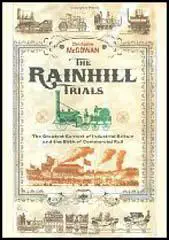

- #MAKING HISTORY THE SECOND WORLD WAR POSTMORTEM HOW TO#
- #MAKING HISTORY THE SECOND WORLD WAR POSTMORTEM SERIES#
Paula did have intestinal tuberculosis, but such a condition could not have caused death." Later evidence emerged that suggested that she either committed suicide or was murdered. As Jefferson Morley points out: "That contradictory diagnosis was not what a physician would have written. Her death certificate said that she had died of a "heart attack intestinal tuberculosis". On 12th September, 1962, Paula was found dead in her home. Paula Murray Scott also discovered about the affair and began drinking heavily. Brian Bell, who worked under Leddy: "It was too bad because he was one of the most competent political officers I ever met in the Foreign Service." When discovered what was going on, Raymond Leddy took a job at the Army War College in Carlisle, Pennsylvania. However, in 1961 Janet began an affair with Winston Scott. Janet Leddy became close friends with Scott's wife, Paula Murray Scott. The two men had been together in Cuba during the Second World War. This enabled him to renew his friendship with Winston Scott, who was now CIA's station chief in Mexico. In 1957 Leddy was sent to Mexico City as chief political officer as the US Embassy. Over the next few years she gave birth to five children. It just asked us to imagine what it felt like to be one.Janet Graham married Raymond Leddy, a senior figure in the Central Intelligence Agency while he was serving in Venezuela. Generation War didn't ask us to hug a Nazi. But it made its audience identify with characters for whom they would usually feel zero empathy. It may not be the most historically responsible depiction of the Third Reich. It wasn't afraid of the trade-off between emotional depth and politically correct objectivity.

But, if anything, this was what made Generation War great narrative drama. With the attractiveness of the actors and the almost sepia-toned quality of some of the shots, there was a tendency towards "Mad Men go Gestapo". But is it possible that one of them could have behaved in this way? Yes. Were all leaders of Polish partisan groups sadistic and antisemitic? Certainly not. There are accounts of such unlikely friendships. Was it implausible that four childhood friends would have been casually hanging out with a Jewish mate in 1941, especially when one of them had just served in the army in Poland? Possibly.

#MAKING HISTORY THE SECOND WORLD WAR POSTMORTEM SERIES#
On the panel show Generation War: Fact and Fiction, the series producer Benjamin Benedict mounted a spirited defence of the extensive research behind the programme. But, over all, it used its narrative freedom wisely and creatively.

From the start, the "five friends" set-up was way too chocolate-box. Yes, there were moments when I thought: "Well, that just wouldn't have happened." Especially when the surviving friends just happen to turn up at exactly the same time at the bar where they partied four years previously. And still we could not bring ourselves to hate her. Likewise Charly, the volunteer nurse who betrayed a Jewish colleague at the earliest opportunity.
#MAKING HISTORY THE SECOND WORLD WAR POSTMORTEM HOW TO#
The moral collapse of Nazi officer Wilhelm Winter (the Don Draper of the piece) was brilliantly captured: it's rare for an audience not to know how to respond to a character but there was a fantastic ambiguity to his downfall. But I also thought it was one of the most interesting and moving things I have seen on television in a while: superbly acted, gripping and challenging. The strange thing for me is that I agree with most of the criticisms of Generation War. Martha Kearney, presenting Saturday's night's postmortem panel show, used the words "five hours of self-pity". The Spectator dismissed it as "cheesy hackwork". When, in November 2013, plans were announced to air the series here, Polish protesters gathered outside the BBC under the slogan: "Stop Nazi Propaganda." They were incensed by the depiction of Polish partisans as antisemitic. Several leading historians criticised the drama for showing "all Germans as victims" and for failing to depict the powerful ideology of the period. The initial response that it was brave and original soon turned into accusations of being overly sympathetic to the Nazis. Labelled "Germany's Band of Brothers", no television programme has ever caused as much debate in German society. More than seven million Germans tuned into the second world war mini-series, Generation War (originally in German, Unsere Mütter, Unsere Väter – Our Mothers, Our Fathers). But did it take too many liberties? And does that matter? There's no question that this was a fictional portrayal. Does drama have to be an accurate depiction of history? Generation War, the third part of which concluded on Saturday night, took a Mauser C96 to this question and shot it in the head, while murmuring a Marlene Dietrich song through painted lips.


 0 kommentar(er)
0 kommentar(er)
